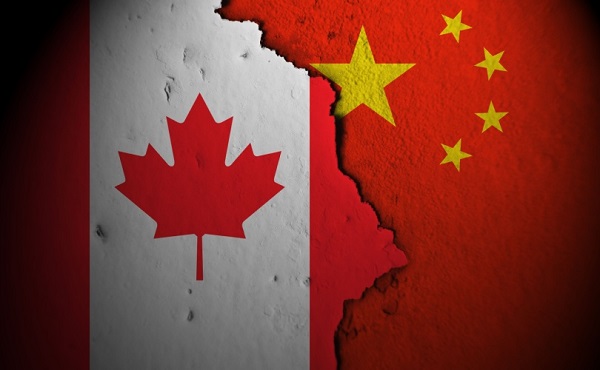Business
Trump considers $5K bonus for moms to increase birthrate

 MxM News
MxM News
Quick Hit:
President Trump voiced support Tuesday for a $5,000 cash bonus for new mothers, as his administration weighs policies to counter the country’s declining birthrate. The idea is part of a broader push to promote family growth and revive the American family structure.
Key Details:
- Trump said a reported “baby bonus” plan “sounds like a good idea to me” during an Oval Office interview.
- Proposals under consideration include a $5,000 birth bonus, prioritizing Fulbright scholarships for parents, and fertility education programs.
- U.S. birthrates hit a 44-year low in 2023, with fewer than 3.6 million babies born.
Diving Deeper:
President Donald Trump signaled his support Tuesday for offering financial incentives to new mothers, including a potential $5,000 cash bonus for each child born, as part of an effort to reverse America’s falling birthrate. “Sounds like a good idea to me,” Trump told The New York Post in response to reports his administration is exploring such measures.
The discussions highlight growing concern among Trump administration officials and allies about the long-term implications of declining fertility and family formation in the United States. According to the report, administration aides have been consulting with pro-family advocates and policy experts to brainstorm solutions aimed at encouraging larger families.
Among the proposals: a $5,000 direct payment to new mothers, allocating 30% of all Fulbright scholarships to married applicants or those with children, and launching federally supported fertility education programs for women. One such program would educate women on their ovulation cycles to help them better understand their reproductive health and increase their chances of conceiving.
The concern stems from sharp demographic shifts. The number of babies born in the U.S. fell to just under 3.6 million in 2023—down 76,000 from 2022 and the lowest figure since 1979. The average American family now has fewer than two children, a dramatic drop from the once-common “2.5 children” norm.
Though the birthrate briefly rose from 2021 to 2022, that bump appears to have been temporary. Additionally, the age of motherhood is trending older, with fewer teens and young women having children, while more women in their 30s and 40s are giving birth.
White House Press Secretary Karoline Leavitt underscored the administration’s commitment to families, saying, “The President wants America to be a country where all children can safely grow up and achieve the American dream.” Leavitt, herself a mother, added, “I am proud to work for a president who is taking significant action to leave a better country for the next generation.”
Business
Inquiry discloses Canada providing a reported $2.5 million in aid to Chinese universities

From LifeSiteNews
The Department of Foreign Affairs refused to say how much money went to schools in China after Conservative MP Lianne Root asked for a dollar amount.
Canadian taxpayers are out millions of dollars that went to aid universities in Communist China, records show.
An Inquiry of Ministry, which was brought forth in the House of Commons at the request of Conservative MP Lianne Rood, shows that the Department of Foreign Affairs refused to say how much money was given to schools in China.
“The department concluded that producing and validating a comprehensive response to this question would require a collection of information that is not possible in the time allotted and could lead to disclosure of incomplete and misleading information,” the department said.
As noted by Blacklock’s Reporter, over the past five years, $2.5 billion was allocated in foreign aid to schools outside of Canada, with educational grants totaling $1,116,507, including $806,257 for postsecondary campuses, primarily directed to China.
“The department undertook an extensive preliminary search to determine the amount of information that would fall within the scope of the question and prepare a comprehensive response,” the department wrote in an Inquiry of Ministry tabled in the House of Commons.
Rood, not happy with the information from the report, asked at a recent meeting, “About Canadian funding for education in developing countries, how much was spent?”
Opposition House leader Andrew Scheer told reporters he is of the view that no money should be going to fund schools in “Communist” China.
“I don’t believe Canadian taxpayers should be sending any money to China,” he said.
“We’re talking about a Communist dictatorial government that abuses human rights, quashes freedoms, violates the rights of its citizens, and has a very aggressive foreign policy throughout the region.”
Scheer called upon the Liberal government of Prime Minister Mark Carney to “stand up for itself, stand up for Canadians, stop being bullied and pushed around on the world stage, especially by China.”
During a 2025 federal election campaign debate, Conservative Party leader Pierre Poilievre called out Carney for his ties to Communist China.
As reported by LifeSiteNews, the Foreign Interference Commission concluded that operatives from China may have had a hand in helping to elect a handful of MPs in both the 2019 and 2021 Canadian federal elections. It also determined that China was the primary foreign interference threat to Canada.
As reported by LifeSiteNews, a new exposé by investigative journalist Sam Cooper has claimed there is compelling evidence that Carney and former Prime Minister Justin Trudeau are strongly influenced by an “elite network” of foreign actors, including those with ties to China and the World Economic Forum.
Business
UK Government Dismisses Public Outcry, Pushes Ahead with Controversial Digital ID Plan

Over 2.7 million signatures couldn’t move the needle on a dystopian plan already set in motion.
|
A UK government plan to introduce a nationwide digital identification system is moving ahead, despite a public backlash that saw more than 2.7 million people sign a petition urging its cancellation.
The proposal, first announced by Labour in September, would provide a digital ID to every UK citizen and legal resident aged 16 and above.
Prime Minister Keir Starmer claimed the new system would help strengthen border enforcement and reduce illegal employment, describing the ID, dubbed the “Brit Card,” as a tool to “make it tougher to work illegally in this country, making our borders more secure.”
The public response was overwhelmingly opposed. Warnings about centralized data collection, privacy intrusions, and increased state surveillance flooded public discourse.
Descriptions of the proposal ranged from a “dystopian nightmare” to fears of a gateway to “digital control.”
Not long after Labour’s announcement, a petition was created on the official UK Government and Petitions website.
|
 |
|
It quickly gathered enough signatures to qualify for parliamentary debate, a 100,000-signature benchmark, and within days surged past two million.
Despite reaching over 2.7 million signatures, the government issued a formal response rejecting the petition and restating its commitment to the scheme.
According to the response, published by the Department for Science, Innovation and Technology, the new ID system is part of Labour’s wider aim to modernize public services.
“We will introduce a digital ID within this Parliament to help tackle illegal migration, make accessing government services easier, and enable wider efficiencies. We will consult on details soon,” the government wrote.
Although a formal consultation process is expected in the coming weeks, involving employers, unions, and civil society organizations, the government made it clear that legislation to support the digital ID system is on the way.
Over time, it is expected to serve as a single access point for government services like benefits, tax records, and other official interactions, potentially eliminating the need for physical documents or multiple logins.
The government’s decision to push ahead with a national digital ID comes in the shadow of the recently enacted Online Safety Act, which has already laid the groundwork for sweeping identity checks across the internet.
That law, marketed as a way to protect children from harmful content, gave regulators broad authority to demand age verification for accessing a wide range of online services.
The result is an emerging digital framework where proving who you are, even just to browse or communicate, is becoming a condition of access.
|
-

 Alberta2 days ago
Alberta2 days agoAlberta’s E3 Lithium delivers first battery-grade lithium carbonate
-

 Automotive2 days ago
Automotive2 days agoCanada’s EV subsidies are wracking up billions in losses for taxpayers, and not just in the auto industry
-

 Business2 days ago
Business2 days agoLA skyscrapers for homeless could cost federal taxpayers over $1 billion
-

 Crime1 day ago
Crime1 day agoThe “Strong Borders Act,” Misses the Mark — Only Deep Legal Reforms Will Confront Canada’s Fentanyl Networks
-

 Agriculture21 hours ago
Agriculture21 hours ago“We Made it”: Healthy Ostriches Still Alive in Canada
-

 Business1 day ago
Business1 day agoUK Government Dismisses Public Outcry, Pushes Ahead with Controversial Digital ID Plan
-

 Energy2 days ago
Energy2 days agoNuclear power outperforms renewables every time
-

 Artificial Intelligence2 days ago
Artificial Intelligence2 days agoAI chatbots a child safety risk, parental groups report




